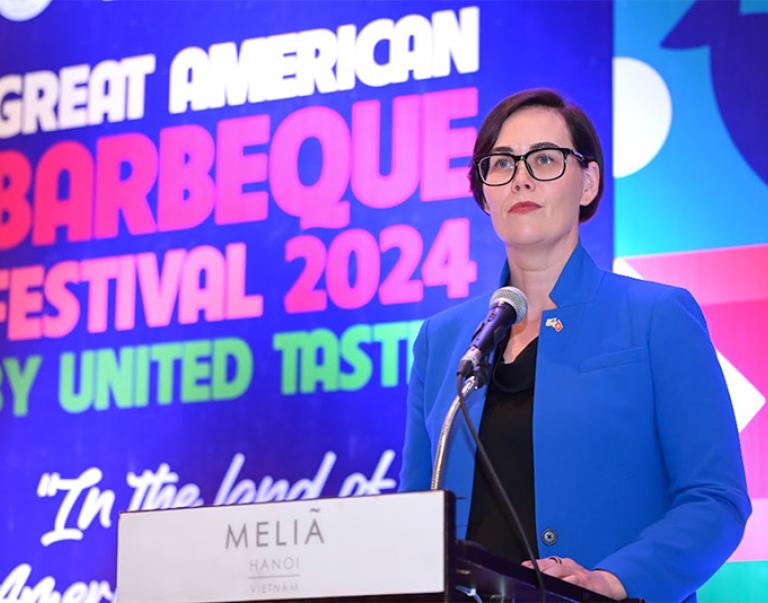After Michelle Hughes graduated from Haverford College, she took a job on a hog farm at the University of Pennsylvania in preparation for veterinary school. While working on the farm, Hughes’ career interests shifted towards production agriculture and advocacy.
“It was at the University of Pennsylvania that I learned it wasn’t veterinary medicine that I was interested in as a career path–it was farming,” Hughes explained. “I really enjoyed the farm management and animal husbandry aspects of the work.”
Despite her love for production agriculture, Hughes discovered several barriers --such as land access and access to affordable housing and healthcare – in pursuit of her desired career in the field. Hughes attended conferences and other career events with young farmers and mentors in search of a likeminded network. “I met a lot of other people that were my age, experiencing the same structural obstacles as me,” she said.
It was during this time that Hughes discovered the National Young Farmers Coalition (Young Farmers). Those early experiences with the organization influenced her career pivot towards becoming an advocate for other young farmers. She began working for Young Farmers while earning a food studies graduate degree at New York University, where she also focused on food systems and agricultural policy.
After assisting with 2018 Farm Bill roundtable organizing with Young Farmers, Hughes transitioned to supporting the organization’s work around federal policy issues like student loan debt, land access, and the climate crisis. In late 2019, Hughes proposed a program that would institutionalize racial equity across Young Farmers and its programmatic work. “And they gave me a job to do that,” she said. “It’s the coolest thing that ever happened to me.”
The National Young Farmers Coalition has since published its first Accountability Report, highlighting all the changes the organization has made to better serve people. Hughes now works to deploy Young Farmer’s strategic plan more equitably. “The agriculture industry has a responsibility to be a leader on racial equity because of its history,” she said.
In February 2022, Hughes was appointed as one of 40 members to the USDA’s Equity Commission and its two subcommittees. The commission and its two subcommittees – the Agriculture Subcommittee and Rural Community Economic Development Subcommittee -- evaluate USDA programs and services and recommend ways USDA can reduce barriers to access by implementing transformative changes.
Hughes feels honored to have a role on the Equity Commission to help bring change to USDA. She’s also grateful for the support she receives from her community. “It was a celebratory moment when I received the call that I had been given a seat on the Agriculture Subcommittee,” she said.
For Hughes, building equity means creating tailored, material benefits for people of color in agriculture. Hughes’ childhood experiences in New Haven, Connecticut sparked her passion for advocacy. “I grew up in an environment where I needed to advocate for basic rights and resources,” she said. “So, I think that framed my thinking and made me someone who feels rewarded by advocating for people who have been oppressed.”
“It’s about individualized support,” she said. “We can’t talk about people’s betterment, we can’t talk about equality, without talking about equity, because to me equity is the avenue to everyone actually having a fair chance.”
Hughes will look for accountability from USDA going forward. “The success of the Equity Commission relies on how much of the intent of the recommendations can be felt by farmers in the outcomes of those recommendations,” she said. “We need momentum. We need accountability. We need to handle things from a place of trust.”




